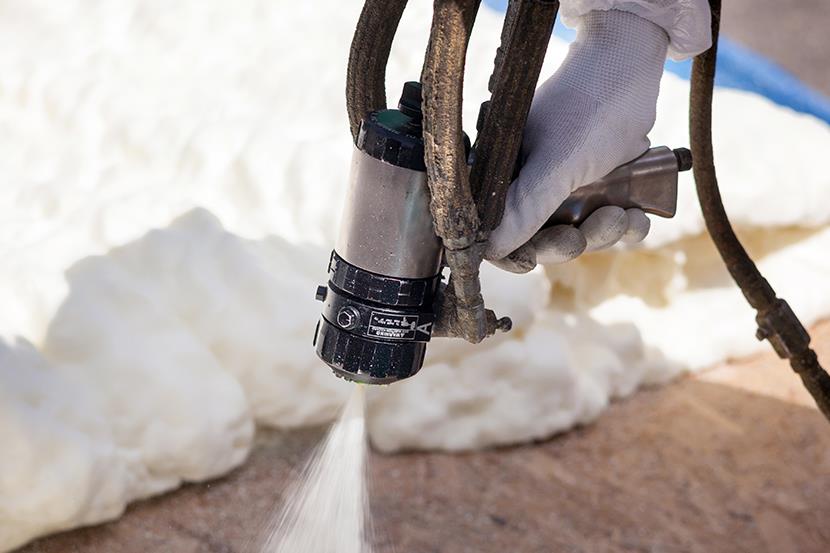New-generation Insulation Makes Buildings and Appliances More Energy Efficient
Spray foam insulation serves as an alternative to traditional insulation materials in residential and commercial buildings, as well as in major appliances like refrigerators, freezers, and water heaters.
In buildings, spray foam works as both an insulation and as an air barrier. In cold climates, it keeps generated heat in and cold air out. In hot climates, it retains comfortable in-house temperatures from air conditioning and blocks heat from entering a building. By maintaining a comfortable temperature regardless of outdoor weather, spray foam reduces the unnecessary use of heating and air conditioning which, can cut energy costs and lower utility bills.
In appliances, spray foam acts as a thermal barrier, keeping refrigeration and freezer compartments cold and preventing heat loss in water heaters and furnaces—which results in improved energy efficiency. Spray foam also contributes to enhanced structural integrity, sound abatement, and vibration dampening in appliances.
Meeting Higher Global Standards for Environmental Impact and Energy Use
Spray foam insulation use is on the rise because of stringent building codes (including the International Energy Conservation Code (IECC) requirements on continuous insulation) and greater awareness of energy savings best practices.
Opteon™ blowing agents for spray foam insulations enable better thermal performance in foam insulation for the life of a structure. This allows builders to achieve a higher insulating effectiveness (R-value) or to use a thinner layer of sprayed insulation than previous generation blowing agents.
This technology is a game changer, so much so that Opteon™ 1100 was named the 2017 CPI Polyurethane Innovation Award Winner because of its superior thermal performance and remarkable stability.
Collaborating with Industry Leaders
Chemours collaborates with spray foam industry leaders and their customers and suppliers to find cost effective ways to optimize their Opteon™ based spray foam formulations, ensuring superior insulating performance with low global warming potential.







